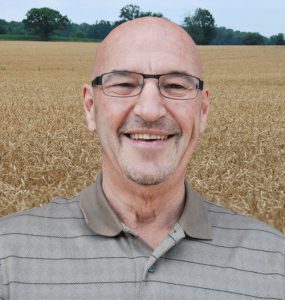Market side: Futures trading basics
LESSON 4: MARKET PARTICIPANTS

This monthly educational series will feature the basic workings of the futures and options markets and how they can be utilized to help farmers with risk management.
LAST MONTH, WE discussed the first two participants in the futures markets, the exchange and the clearing house. This month, we will focus on four other key players.
INTRODUCING BROKER (IB)
A firm or individual that solicits or accepts orders for commodity contracts traded on an exchange. IBs do not actually hold customer funds to margin. Client funds required for margin are held by a futures commission merchant (FCM) associated with that IB. This is more common in the U.S. than Canada, as most brokers are in brokerage firms.
FUTURES COMMISSION MERCHANT (FCM)
A firm or individual that is certified by the Commodity Futures Trading Commission (CFTC) to solicit or accept orders for commodity contracts traded on an exchange and holds client funds to margin, similar to a securities broker-dealer. Most individual traders do not work directly with a FCM, but rather through their representative or brokers.
COMMODITY BROKER
A firm or individual who executes orders to buy or sell commodity contracts on behalf of clients and charges them a commission. In Canada, an individual who is a licensed broker for a futures firm is generally known as a registered representative (RR). Every RR must be employed by a recognized FCM to buy or sell futures on behalf of clients. This is the most common route to opening a trading account in Canada.
FLOOR BROKER/TRADER
An individual who trades commodity contracts on the floor of a commodities exchange on behalf of an FCM. When executing trades on behalf of a client in exchange for a commission, he is acting in the role of a broker. When trading on behalf of his own account, or for the account of his employer, he is acting in the role of a trader. Floor trading is conducted in the pits of a commodity exchange via open outcry. In recent years most “pit” trading has been replaced by electronic price match trading.
Next month, we will continue with our final two key participants along with a brief description of how and why each one of them makes use of the futures markets. There are also several governing bodies in the U.S. and Canada with regard to licensed brokerage firms. Our definition section below will give you an overview of who they are and their responsibilities. •
Marty Hibbs is a 25 year veteran futures trader, analyst, and portfolio manager. Hibbs was a regular guest analyst on BNN for four years. He is currently a grain merchandiser with Grain Farmers of Ontario.
|
Lesson Definitions: Commodity Futures Trading Commission: was established by a government mandate in 1974 to enforce rules stated in the Commodities Exchange Act. The Commission regulates trading in futures exchanges. This regulation gives investors the peace of mind that prices of options and commodity futures are fair. Investment Industry Regulatory Organization of Canada (IIROC): sets Canadian regulatory and investment industry standards. It carries out its regulatory responsibilities through setting and enforcing rules regarding the proficiency, business, and financial conduct of dealer firms and their registered employees. It holds compliance hearings and has the power to suspend, fine, and expel members and registered representatives. Canadian Investor Protection Fund (CIPF): is a not-for-profit corporation created by the Canadian investment industry in 1969 to protect investor assets, up to one million dollars, in the event of a CIPF member’s bankruptcy. CIPF is funded by its members, which are the approximately 200 investment dealer firms regulated by the IIROC. |


















